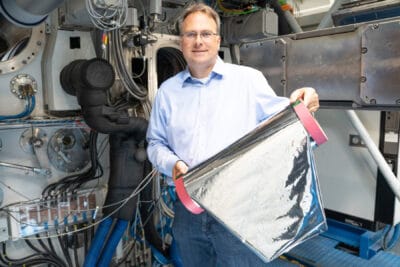Faraday Battery Challenge announces new funding round
The Faraday Battery Challenge has announced its latest round of funding. A total sum of £27.6 million will go to 17 UK projects working on various battery innovations.
This time, the battery challenge organizers are following a more balanced approach than the previous rounds. The directors of the challenge said all the selected projects demonstrated a balance between specific technical, market, and business requirements which would help to move battery innovation from technological potential to commercial reality. This is also designed to help the UK reach its net zero commitments for 2050.
The range of projects covering different technologies focus on aspects of the battery value chain. In particular, the government aims to boost the UK’s EV battery supply chain, and as a result, the challenge is aimed at backing projects that can improve battery performance, reduce the cost of batteries, develop more efficient and globally competitive manufacturing processes, develop more sustainable batteries, and accelerate the development and deployment of battery technology.
For example, one of the newly funded projects is exploring the potential for Lithium-sulfur (Li-S) batteries as an alternative to Li-ion batteries, which require more rare earth metals. Titled OXLiD, the project also involves partners at the University of Nottingham, University College London, William Blythe, WAE, Exawatt, Emerson and Renwick, and Infineum UK.
Project REBLEND aims to further develop three processes to directly recycle and recover valuable cathode active materials from used batteries, and further aims to build the basis for a UK-based automotive battery recycling industry. Another aspect of battery research and technology is covered by the project About:Energy, which was awarded a project to further develop The Voltt: their database of battery model input parameters, providing a more theoretical approach to battery design.
The HISTORY project, named for “The HIgh Silicon content anOdes for a solid-state batteRY” will further develop a multi-layer, solid-state pouch cell with specifications aligned with the needs of electric vehicle pack developers. This is also intended to help end the reign of Li-Ion batteries, which currently dominate the market.
Finally, the project EXtrAPower – Enabling Xtreme Automotive Power – is led by Nyobolt in cooperation with the University of Cambridge, Coventry University and WAE. Nyobolt is bringing to market an ultra-fast charging battery technology, while this project is seeking to optimise cell performance over an extended operating temperature range with enhanced cycle life.
“Efficient and reliable batteries are the key to powering new, green industries that will create jobs and enable our UK-made transition to net zero – from our world-leading renewables industry to our growing electric vehicle sector,” said Minister for Industry and Investment Security Nusrat Ghani.
“The range of new projects funded by Innovate UK that are based on Faraday Institution research clearly demonstrates the success of our organisation in identifying and pursing battery science and engineering ripe for commercialisation,” added Professor Pam Thomas, CEO of the Faraday Institution, continuing: “The Faraday Battery Challenge is working as intended to marry research, innovation and scaleup to deliver positive impact for the UK. The 17 projects announced by Innovate UK today will help create a thriving and profitable UK battery development and manufacturing industry.”





0 Comments